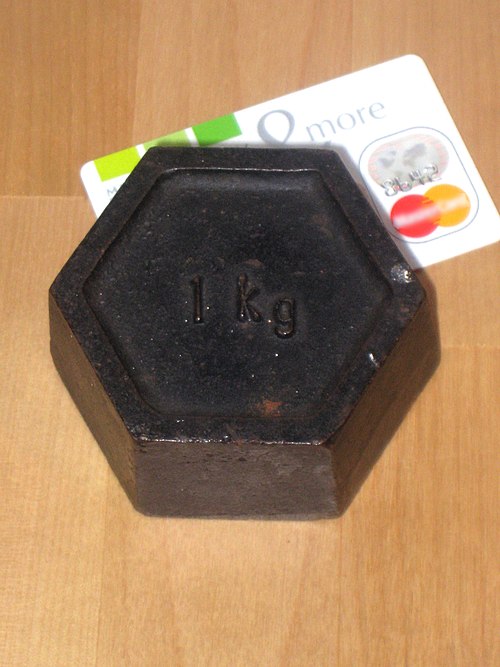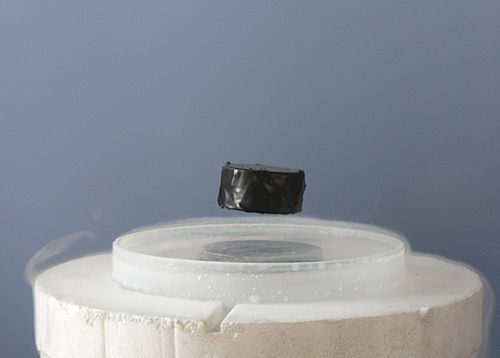Kilogramnoun
In the International System of Units, the base unit of mass; conceived of as the mass of one liter of water, and now defined as the mass of a specific cylinder of platinum-iridium alloy kept at the International Bureau of Weights and Measures in France. Symbol: kg
Kilogramnoun
(proscribed) The unit of weight such that a one-kilogram mass is also a one-kilogram weight.
Kilogramnoun
A measure of weight, being a thousand grams, equal to 2.2046226 pounds avoirdupois (15,432.34 grains). It is equal to the weight of a cubic decimeter of distilled water at the temperature of maximum density, or 39° Fahrenheit.
Kilogramnoun
one thousand grams; the basic unit of mass adopted under the Systeme International d'Unites;
Kilogram
The kilogram (also kilogramme) is the base unit of mass in the International System of Units (SI), the metric system, having the unit symbol kg. It is a widely used measure in science, engineering and commerce worldwide, and is often simply called a kilo in everyday speech.
Newtonnoun
In the International System of Units, the derived unit of force; the force required to accelerate a mass of one kilogram by one metre per second per second. Symbol: N.
Newtonnoun
English mathematician and physicist; remembered for developing the calculus and for his law of gravitation and his three laws of motion (1642-1727)
Newtonnoun
a unit of force equal to the force that imparts an acceleration of 1 m/sec/sec to a mass of 1 kilogram; equal to 100,000 dynes













